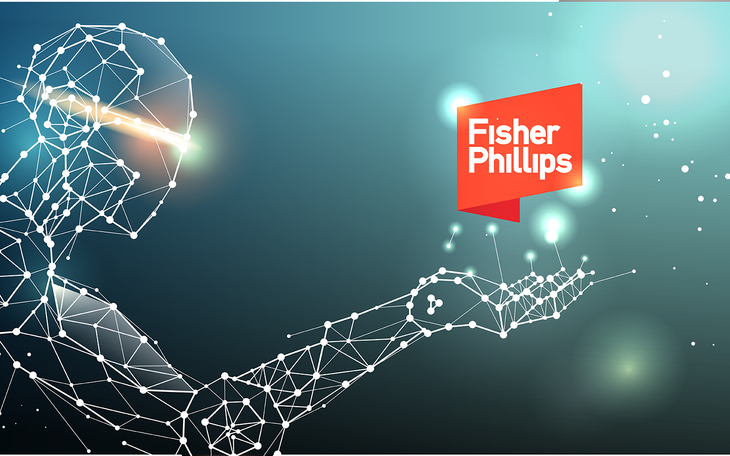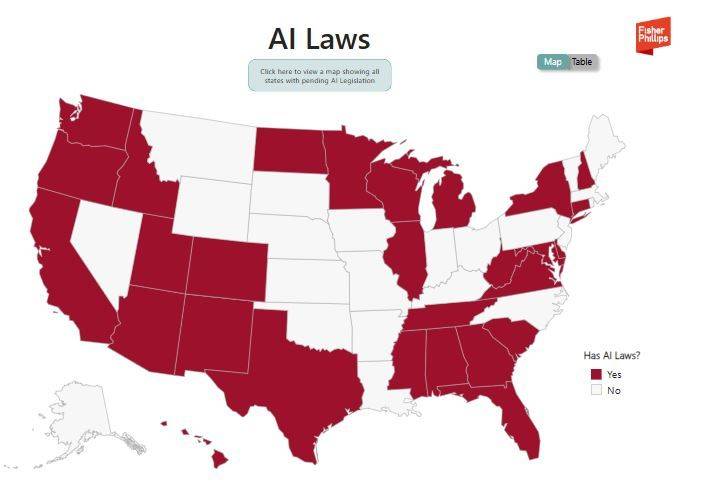
Overview
The use of artificial intelligence (AI) – technology that replaces or augments aspects of human decision making or simulates human intelligence – is exploding in the workplace. Employers who haven’t started using AI, process automation, or data analytics probably will once they discover their potential to increase efficiency and lower costs. Early adopters are implementing solutions in areas like recruitment, compensation, health and safety, and productivity management, but these technologies will have many applications we can’t yet fathom. Although legal and regulatory frameworks are already expanding to address privacy, discrimination, and accessibility concerns, many companies still don’t have policies governing their use of AI. Whether you’re currently or considering using AI in the workplace, you need savvy and experienced labor and employment counsel to help you understand and maximize its value while reducing legal, ethical, and reputational risks.
Fisher Phillips’ cross-disciplinary AI Team has an in-depth, first-hand understanding of the opportunities and risks of these rapidly evolving technologies. We routinely help employers grasp the legal and business implications of AI in the workplace and mitigate risks. We’re also early adopters ourselves: as the first major law firm to deploy CoCounsel, CaseText’s legal AI tool powered by OpenAI’s GPT-4 technology, and other cutting-edge search and analytics tools, we’ve seen how AI can boost our own accuracy, efficiency, and decision making. We’re also one of the few law firms to have a full-time Chief Innovation Officer to help our clients and attorneys harness the power of AI and data analytics.
Our dedicated AI team advises clients on:
Compliance with applicable laws and regulations. As federal, state, local, and international laws and regulations evolve to match the growth and impact of AI, their applicability and requirements are likely to vary substantially. This will significantly change the way you do business. You will have to consider the workplace impacts of EEOC decrees involving the use of AI, a developing federal framework for AI, including the White House Bill of Rights, state and local efforts to reduce the risk of algorithmic bias in AI technology (such as New York City’s law requiring “bias audits” before automated employment decision tools (AEDTs) are used), and rapidly developing domestic and international data privacy laws. We’ll guide you through your obligations and help you adapt, develop solutions, and mitigate risks. Whether you’re looking to use AI for people analytics, employment agreement review, or compliance tasks, we’ll help you remain up to date and compliant.
Integration of AI in the workplace. Our team will help you assess capabilities and appropriate uses, as well as launch, monitor, and sustain initiatives to improve human resources processes like recruiting, hiring, retention, performance evaluations, and training.
We’ll also work with you to:
- Create policies governing your development and use of AI
- Handle employment law challenges arising when using AI to restructure or “right-size” the workforce
- Resolve disputes by advocating your positions in litigation and other proceedings
- Keep on top of legal developments by informing you of changing laws and regulations and providing practical guidance on what they mean for your business.
If you’ve got questions about your current or potential future use of AI in the workplace, contact a member of our AI Team to learn how we can assist.



